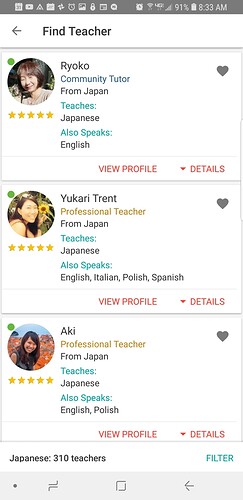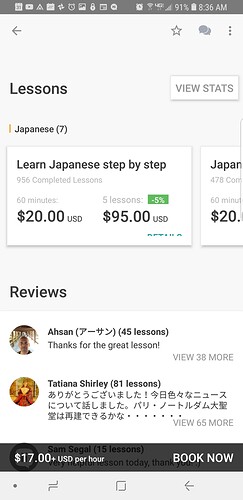I have worked through Genki I and II (although need to go back through again a few times more to try to consolidate the knowledge) but when I speak with my language exchange partners I can’t seem to get beyond the most basic language structures - even to my own ears I sound dreadful, like a stuttering child. So frustrating. Practice makes perfect but at this rate I’m not sure I’ve got enough years left!
How long have you been studying. If you can speak like a 5 year old congrats… 5 years old are pretty advance in talking. Remember is take a 5 year old, 5 years to speak like a 5 year old ![]()
Dont worry I know what you was hinting at…
I cant speak from personal experience but I don’t think you should go back and work through genki again. I think you should be moving on and continuing - also read different material and sentence mine to reinforce what you did learn through genki (this gets you use to different materials). If you do come across something you bit unsure on and then go back and review lesson.
I just think going back and starting from scratch will be mostly time wasted. You will remember a lot (even if you think you dont remember). You probably wont benefit as much as you think you will. Thats just my opionion. I’ve also heard people say after completing Genki they tend to sound like a 5 year old as its n4ish.
I encounter Japanese 5 year olds semi-regularly, and the problem is they don’t ****ing enunciate. They talk way too fast, but they don’t typically have major grammar issues.
I think it’s a lot like competitive Smash, if you go into a game trying to apply everything you’ve been trying to learn, you’ll become overwhelmed and frustrated.
So just pick 3, 4 grammar points you know you can use but don’t come naturally, and find a way to use them in conversation, or even when talking to yourself. Once you master them, move to the next concept.
I’ve yet to master japanese, but I can tell you from a language-learning standpoint (I’m not a native english speaker) that the key lies in using the language as much as you can!
I do reading mostly (totally suck at talking) but I did have an interview recently for placements. What I did was I just read example sentences from a grammar book out loud. And while I did that I would tap with my finger at a regular pace to make sure that I wasn’t randomly speeding up or slowing down.
And then I proceeded to fail that interview miserably, but at the very least my stuttering stopped. Definitely not a cure-all for speech issues but it’s a good exercise I think?
I good quick throat punch helps. They’ll slow down.
Eh, I just nod and say そうですね and forget about it.
Usually, what I like to do to combat this is pick one or two grammar points and focus on using them in conversation as much as you can until you’re comfortable and don’t need to struggle to recall them in ordinary situations. Obviously, don’t go out of your way and make things sound unnatural, but the more you concentrate on using these one or two grammar patterns, the more quickly your brain will get used to using them more frequently. I struggle with this myself, mainly because it’s so easy to drop a simple sentence rather than elaborating more fully, but if you can try to find a regular conversation partner (or several) with whom you can practice. Practice does indeed make perfect, so keep going!
Nothing to be done besides hit the books and chat it up with tons of 日本人, yo. I started self-studying Japanese in HS and had a vague feeling that I could kind of chat with Japanese people, but eventually realized that I actually knew almost no grammar, just knew some words and how to pronounce the language well for a beginner.
If one of your goals with Japanese is to get good at conversation, it’s absolutely essential that you do a LOT of conversation! I know this seems obvious, but you’d be surprised how many people are at a loss for why they can’t converse, yet they barely ever actually chat in Japanese! Studying abroad in Japan (and then moving back here for work) helped me a ton of course, but you can absolutely find Japanese people while living in a foreign country if you are willing to use the internet. Check out apps like HelloTalk to do text chat (I’ve also seen a lot of people asking for voice chat partners there too, if that’s your thing)–it’s free and you can meet tons of Japanese people who also want to work on their own foreign language skills at the same time!
Edit: Also, don’t underestimate the importance of vocabulary. It’s seriously huge, and I constantly feel like I’m trying to catch up on it. Get an anki vocab deck like core2k or whatever and start studying that too.
With a background in linguistics, for me the major thing I’ve noticed with very young native speakers (of any language, really), is that they don’t really understand all the implications of what it means for a person to speak a different language natively. The younger they get, the less likely they are to take care in speaking slowly, simplifying speech etc for the sake of non-native people they’re talking to. It’s actually really cool to see when kids start to be able to think abstractly and rephrase something they want to say to a non-native who didn’t understand their original sentence.
あのね
あのさ
ねえねえ
あのね
ウンコ
Is a typical conversation from a five year old Japanese kid
Yes, I’ve noticed this as well. In their minds, adults are all-knowing beings. It doesn’t occur to them that there are things they might know that an adult around them doesn’t know…like a language.
I’ve been lucky to make friends with several families in Japan. When I visit, I love interacting with the children - compared to the adults, I’ve found the kids tend to be much more direct about not letting your mistakes go uncorrected (although this is may be more of a cultural phenomenon than what you were talking about). They also speak more repetitively, which can get annoying, but is useful for drilling new vocabulary and phrases into your brain ![]()
To be fair, it’s also that kids’ interests tend to be simpler, requiring less advanced vocabulary, and the ones I’ve met know less English and are not eager to use it (relative to their parents), which eliminates an escape hatch. No choice but to learn!
Yeah unfortunately Japanese adults are often too polite and non-confrontational to correct your language much, haha. I found that even my host family rarely ever corrected my Japanese unless I specifically asked for clarification on my grammar/vocabulary somewhere. I think a person’s best bet is to befriend a Japanese person and then once you know them a little bit better, stress that you really want to get good at Japanese and that you want them to let you know when you make a mistake in your language.
I have ONE Japanese friend that will correct my Japanese. We’ve been friends for years and she knows that I’m studying very seriously, which is why she will strictly correct me when I make a mistake. She’s also the bartender at my favorite bar, so we’re usually both more than a little よっぱらい. That probably helps her to feel more comfortable correcting me along with the fact that I’m always super appreciative. I’m especially appreciative that she’ll let me have it if I do something that would be considered inappropriate in Japanese culture.
One thing she let me in on is that Japanese people are very sensitive to the topic of housefires in winter so even if one happens in your area, it’s best not to bring it up. You might make someone feel uncomfortable otherwise.
Wow, I’d never heard that about the house fires thing from anyone. Did she explain why at all?
That was basically all she said, but it makes sense if you think about it in Japanese cultural context. Generally, you want to avoid making anyone feel uncomfortable and it’s very possible that someone might know a person who had a fire in their home and that topic could bring back bad memories. Housefires are pretty common in the winter.
I didn’t read all of the replies…
But Hinative might help along with italki.
Italki - tutors and teachers with degrees online and the prices are reasonable. There are tutors that are pretty cheap that can just help you with speaking or pay a little more on average and get a certified teacher.
Hinative is an app with an upgrade feature if you want to pay. I don’t. You can ask specific questions regarding different languages. I of course chose Japanese. You can also help people who are learning English. The only thing you have to be careful about with HiNative is that anyone can answer. So you have to take their answers with a grain of salt.!
So the profile is of one of the teachers.
They have different prices, packages, and things they work on. So if one teacher doesn’t work for you just move onto a different one that does.
This topic was automatically closed 365 days after the last reply. New replies are no longer allowed.








